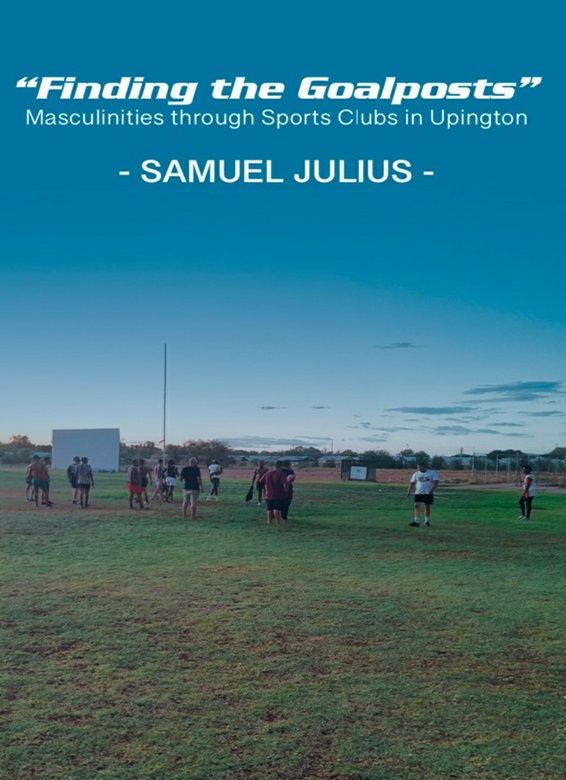“Finding the Goalposts” explores how sports clubs in Upington, South Africa, become dynamic spaces where young Black men actively shape and reshape ideals of masculinity. By focusing on the nuances of everyday interactions within these clubs, this study reveals how players negotiate complex expectations around responsibility, ambition, and vulnerability. Challenging simplistic stereotypes of “disciplined” or “bad-boy” athletes, this research highlights the diverse ways young men express their masculinity. From handshake rituals to responses to on-field tragedies, the book examines how players navigate public displays of care and affection. It also uncovers the importance of interconnectivity and the persistent stigmas surrounding open communication and emotional support among these young men. Ultimately, this ethnography moves beyond common narratives that portray men solely as victims or perpetrators. Instead, it provides a rich and nuanced understanding of how young Black men in South Africa actively create their own meanings of masculinity within the unique context of sports clubs. A must-read for anyone interested in gender, sports, and youth culture in contemporary South Africa.


| ISBN | 9789956554447 |
| Pages | 146 |
| Dimensions | 203×127 mm |
| Published | 2025 |
| Publisher | Langaa RPCIG, Cameroon |
| Format | Paperback |



3 comments
“Samuel Julius has made a striking and highly readable contribution to understanding sport- playing men and masculinity. He invites us to the small dusty town of Upington to experience the world through the eyes of its rugby and soccer players and enables us to see how they live their lives and in so doing create positive versions of masculinity.” Robert Morrell, University of Cape Town
“Samuel Julius has initiated a way to connect us – the readers – to the youth in sport clubs by describing how roles and responsibilities shape masculinities in Upington's convivial sports teams. Focusing on youth masculinities, not only in South Africa, but across the continent, this monograph is an invigorating demonstration of rigorous fieldwork and participant observation as anthropological research tools.” Ayanda Manqoyi, University of California, Davis
“This book is a sensitive and thoughtful ethnographic account of the role of sports in the lives of men in contemporary South Africa. It presents a nuanced view of sports clubs as spaces of camaraderie and mentorship for Black men from underprivileged backgrounds, where they negotiate care for each other and for others, address issues of financial precarity, and even deal with grief. The book will be of interest to researchers, students, and practitioners interested in masculinities, sports, intersectionality, and African studies.” Uroš Kovač, University of Groningen